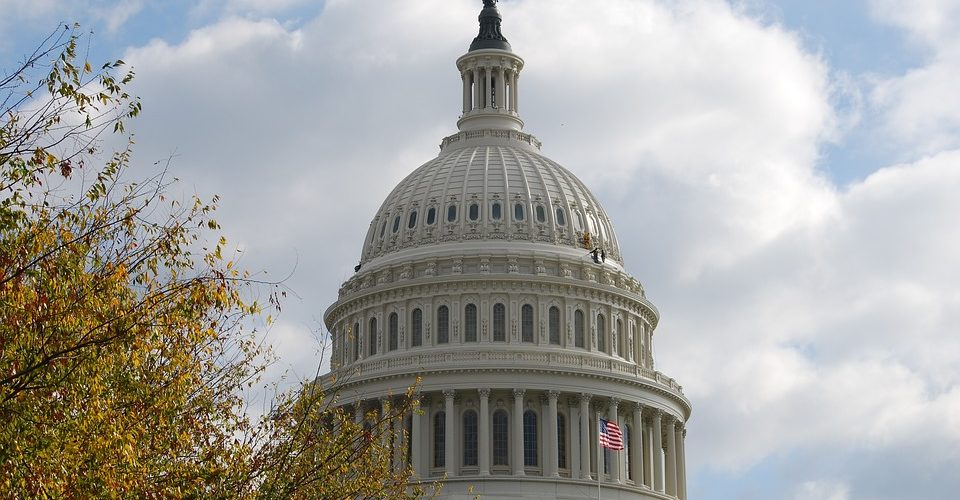Dreamers and foreign workers are back in the spotlight on Capitol Hill as the House starts the annual battle for immigration reform.
For two decades, Congress has tried – and failed – to provide a solution for millions of living in the country without legal status, but who were oftentimes brought by their parents to the U.S. as children.
In a new attempt, House Democrats reintroduced the Dream Act on March 12 with new language that provides a path to citizenship for Dreamers and other immigrants who are here because of crises in their home countries. The bill also includes a new provision allowing Dreamers to receive federal financial aid, making a college degree more affordable and attainable.
America’s economic health relies on their contributions, Democrats and other speakers said during a House Judiciary Committee on Protecting Dreamers and Temporary Protected Status (TPS) recipients.
“For the sake of our economy, our communities and our humanity, I hope we can move forward in a bipartisan way, finally, to help provide the privileges and protection these individuals need and deserve,” Chair Jerrold Nadler (D-NY) said during opening statements.
Meanwhile, a majority of Americans and businesses support increased border security as well as legal protections for Dreamers. Dreamers are recipients of the Deferred Action for Childhood Arrivals (DACA) program for undocumented children who were brought here before 2012. The program offers eligible applicants a two-year-renewable residency and a work permit, and shields them from deportation
The program was put at risk last year when the Department of Homeland Security rescinded the program, one of President Donald Trump’s campaign promises.
For now, Dreamers are safe as the issue moves through the courts.
Business lobbying for a permanent solution
Industry is lobbying Congress heavily to finally act. Dreamers and other immigrant workers and students represent a critical workforce, they said. Mass deportation would be economically devastating.
Hundreds of businesses and organizations including Apple, Amazon, AT&T, Facebook, Walmart, Wells Fargo, the National Association of Manufacturers, the National Restaurant Association and the U.S. Chamber of Commerce are calling for Congress to find a resolution.
The new Dream Act
House Democrats plan to create a legal path to citizenship for Dreamers and Temporary Protected Status (TPS) holders and Deferred Enforced Departure (DED) recipients. TPS and DED recipients are in the U.S. because of crises in their home countries.
The bill, the Dream and Promise Act of 2019 (H.R. 6), would allow Dreamers to remain in the U.S. and become legal citizens if they fulfill certain education, employment or military requirements.
It also offers a path to citizenship for TPS holders and DED recipients. If they meet certain requirements, they could receive lawful permanent status after five years.
Judiciary committee hearing
During the Judiciary Committee hearing March 6, DACA recipients and their advocates talked about their struggles to succeed in America while living in the shadows.
Supporters including Arizona Congressman Greg Stanton (D-AZ) spoke of the tremendous contributions of immigrant workers and students and others who deserve a path to citizenship.
Arizona Congressman Andy Biggs (R-AZ) spoke about the need for more internal and border security and visa and immigration fraud prevention to be included in the legislation.
Without those reforms, any legislation will fail in the Senate, said Ranking Committee Member Doug Collins, (R-GA).
“Any bill granting mass legalization and shunning real enforcement measures will be opposed for the stunt that it is,” Collins said.
Currently, there are about 800,000 Dreamers enrolled in DACA. If Congress can come to some kind of agreement, millions of employees and businesses would benefit.
Congress and the president must do their part, said Arizona Rep. Raul Grijalva (D-AZ).
“When President Trump ended the DACA program, he threw the lives of DACA recipients into turmoil and left them in a legal limbo that persists to this day,” Grijalva said.
“My Democratic colleagues and I are ready to support commonsense legislation that does this, and it will be up to Republicans and President Trump to support it.”
















Add comment